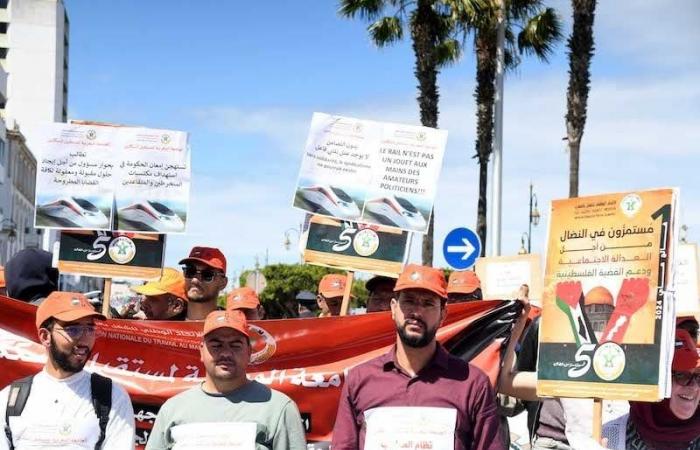Parliamentary advisor Khalid Sati, representative of the National Union of Labor in Morocco (UNTM), strongly criticized the draft organic law on strike recently adopted by the House of Representatives, calling it “ restrictive » and denouncing its rejection by a large part of the trade union, political and human rights movements.
During the general discussion of the text Thursday within the Committee on Education, Cultural and Social Affairs in the House of Advisors, Sati announced that the opponents of this law, including the UNTM, have decided to organize a national protest march this Sunday in Rabat under the banner of the National Front for the Defense of the Right to Strike. This mobilization aims to denounce the government management of the bill, considered authoritarian and supported only by the majority, as well as the provisions it contains, considered contrary to constitutional principles.
The advisor stressed that the adoption of this law should be part of a global reform guaranteeing balance in labor relations. He called for the resolution of fundamental problems, the reform of the labor inspection system, the improvement of mediation mechanisms and the promulgation of a law on trade unions, in accordance with Article 8 of the Constitution.
He recalled that the UNTM trade union group had presented a proposed law on unions and professional employers’ organizations. However, this initiative was rejected in writing by the government, despite the unjustified exclusion of the UNTM from social dialogue, despite being the third trade union center in the private sector.
The advisor insisted on the need to examine this bill in its social, political and legal context, while questioning the causes of the delay accumulated in its adoption, despite its presence in previous social dialogues.
Also, he urged the government to recognize the right to strike as a fundamental human rights right, calling for expanding freedoms rather than restricting them. He also underlined the importance of respecting international conventions ratified by Morocco, in particular Convention No. 87 of the International Labor Organization (ILO), and of repealing article 288 of the Penal Code.
But not only that! Sati called for regulation of the right to strike without discrimination against different social categories. He criticized some absurd provisions » of the bill, ironically: “ Will we have to reserve football stadiums for general meetings of companies with 10,000 employees, since the presence of 50% of the workforce is required?“. He also rejected the articles relating to deadlines, fines and the complexity of procedures governing the exercise of the right to strike.
-In the same spirit, Loubna Alaoui, advisor to the UNTM, estimated that this project requires an in-depth analysis taking into account its economic, social, developmental and legal dimensions, in order to guarantee a balance between the rights of workers and the obligations of employers, whether in the public or private sector.
Alaoui recalled that the UNTM had already expressed its opposition to certain provisions of the text during its examination by the Social Sectors Commission of the House of Representatives, during the night of the legislative elections of October 6, 2016. It then demanded the opening of a societal dialogue around this crucial issue.
The advisor welcomed the recent consultations between the government and the trade union centers, including the UNTM, hoping that this spirit of consultation will continue until the adoption of the law. She stressed the importance of not relying solely on the majority, especially since the House of Advisors includes representatives of employees and employers.
Finally, Alaoui insisted on respecting constitutional references and international conventions in the development of this law. She called for a review of repressive provisions, such as salary deductions in the event of a strike, overly complex strike call procedures and restrictions imposed on movement initiators.
She also called for the adoption of a law on unions in order to democratize the union landscape and clarify the responsibilities of the actors concerned. Alaoui called for the reform of article 288 of the Penal Code, the creation of specialized social courts and the correction of the dysfunctions of the conciliation commissions, while suggesting the activation of the arbitration mechanism, which is currently ineffective.






